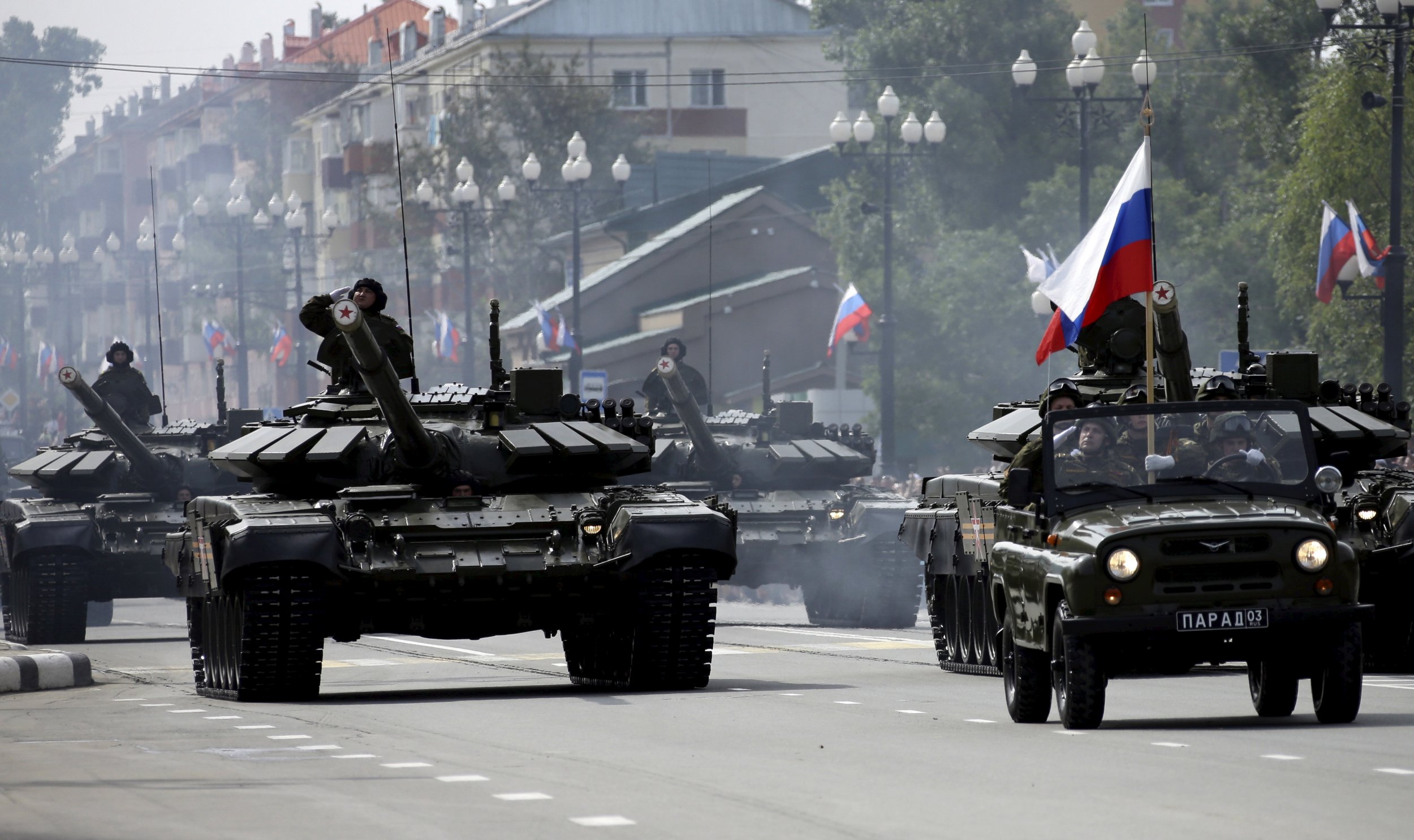
The NATO Warsaw Summit has decided to deploy four battalion combat groups in Poland and in three Baltic states to reassure these countries against the threat of a hypothetical Russian invasion. Moscow has expressed its reaction in the words of Maria Zakharova, spokesperson for the Russian Ministry of Foreign Affairs.
"NATO must stop reacting to the non-existent threat," Zakharova wrote, following the summit. NATO's "overreaction" and "provocative troops deployment" were a central topic for Russia during Wednesday's meeting of the Russia-NATO Council. No breakthrough occured, and NATO was not persuaded to believe Russia's claims it posed no threat. Here is why.
One should probably keep in mind that the "threat" to which NATO is responding is deemed such by Russia's neighboring NATO member states. Poland and the Baltics—they are the ones feeling threatened. What the Russian Foreign Ministry's spokeswoman is telling them is that there are absolutely no reasons for them to feel threatened. Really? Pieces can so easily be assembled to produce the full picture—and that is a rather threatening picture indeed.
Firstly, the recent developments in Russian society and the Russian military build-up look worrying. How can they not? One can recall the inscriptions "Na Berlin!" ("To Berlin!") on the practical bombs Russian jets were broadcasted dropping at the Volga region proving range during exercises last year. In the run up to Russia's Victory Day celebrations—commemorating the Soviet Union's victory over Nazi Germany—last May Russian authorities could not resist allowing widespread displays of "patriotic" bumper stickers reading "We can repeat it!" ("Mozhem povtorit!"), the undisguised hint for a new military campaign to come again to the heart of Europe. If those are not the threatening statement of possible intentions—what are those?
Secondly, as if oral threats were not enough, some of the Russian military's activities suggest it is not defensive tactics they are pondering. This year Moscow highly symbolically reestablished its 1 st Guards Tank Army. Tank armies are not the best instrument of defense by themselves. A tank army is much better suited for offensive operations. Just recall what one German tank army nearly did to the Allies in Ardennes in December 1944. And the 1 st Guards tank army is a very special symbol. It was not only the unit which assaulted and finally captured Berlin in April 1945 but the 1 st Guards was also to develop a strategic breakthrough deep into West Germany at the infamous Fulda Gap (accompanying the 8 th Guards army) during the Cold War era.
Another re-established formation—the 150 th motorized-rifle division in Novocherkassk near Rostov-Don—is equally symbolic. The 150 th was the division whose men hoisted upon the Reichstag the red Soviet flag which is still the official symbol of the Red Army's triumph over Germany. In military terms, intentions, defensive or offensive, are supported by material means. And these means don't end there.
The 237 th Guards air assault regiment is to be re-established within a 20-minute helicopter flight from the Russo-Estonian border. What on the Earth should Estonians think it is designed to assault, if not their homeland? After all, the very name of the regiment assumes it is not intended for defense. Three more regiments of the 76th Guards air assault division are sitting in Pskov just 30 kilometers from the border and they do not spread calm in Estonia either. Keep in mind these regiments were the ones that "gloriously" participated in the "liberation" of Crimea and the "defense" of the "Russian world" in the east of Ukraine.
Two heavy motorized-rifle brigades relocated in a hurry to Russia's western border several months before Warsaw Summit, along with a dozen of specialist brigades (near the western border), and the 11 th Army Corps (in Kaliningrad) is undergoing re-establishment now—all just additional elements of the "peaceful" preparations on the Russian side. Can't those impressive new formations be seen by Poles and Balts as a bit excessive for a hypothetical counter-balancing of just four NATO battalions planned for deployment since 2017?
Threats to "turn the U.S. into radioactive ashes," aim "nuclear missiles" or to treat Poland and Romania as "targets" seemingly should help East Europeans feel reassured. And the recent exercises held in June this year in Russia to practice full-scale mobilization—are those exercises, combined with nuclear threats, also seen as reassuring for the NATO states by Moscow?
There are those in the West who insist that the door should be kept open for Russia to resume cooperation. Proponents of cooperation are absolutely right—cooperation is always better than confrontation. But the Kremlin has so heavily invested into the infrastructure of confrontation that one cannot help but ask these 'cooperativists': what makes you believe that Russia really wants cooperation?
From Russia's perspective, it tried the cooperative approach under Mikhail Gorbachev, Boris Yeltsin, and during Putin's early years—resulting in complete failure to retain influence. If everyone in the Kremlin is convinced that cooperation does not bring "fair" treatment to Russia, after all isn't it time for them to play "bad cop" and try confrontation, Moscow ponders?
It is not difficult to recognize that Russian spokepersons just articulate the Kremlin's quite Orwellian line—"war is peace", "threat is the extended friendly hand." That is why it is very important to scrutinize reasons behind the opinion that it is better not to react to threats. Otherwise it might be that those who call for cooperation unintentionally sing from the same songbook as the Kremlin: "Don't worry, be happy—and stop reacting to the non-existent threat!"
Igor Sutyagin is senior research fellow, Russian Studies, Royal United Services Institute.
Uncommon Knowledge
Newsweek is committed to challenging conventional wisdom and finding connections in the search for common ground.
Newsweek is committed to challenging conventional wisdom and finding connections in the search for common ground.
About the writer
To read how Newsweek uses AI as a newsroom tool, Click here.








